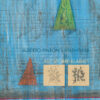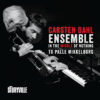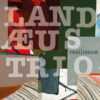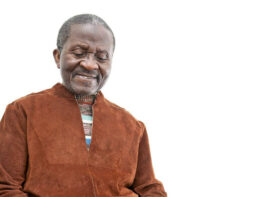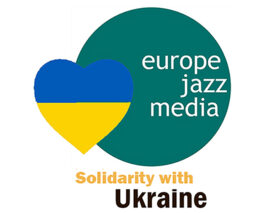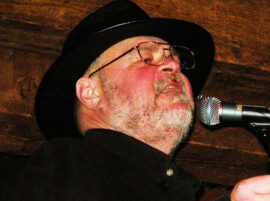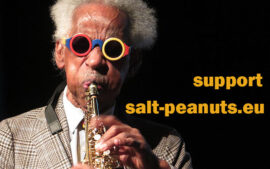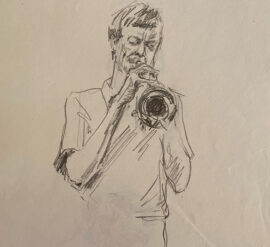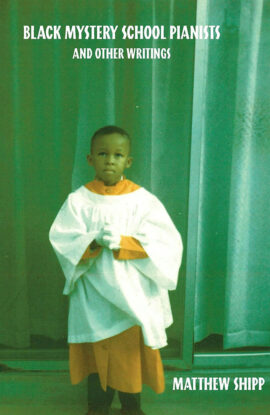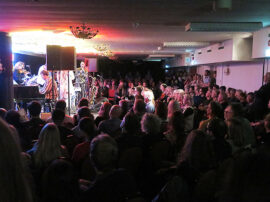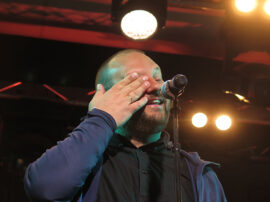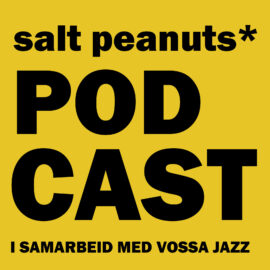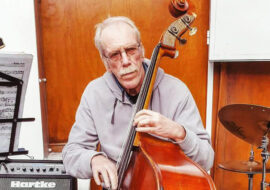
Esecutori di Metallo su Carta is an anticlassical music ensemble founded in 2016 by Italian reeds player Enrico Gabrielli and percussionist Sebastiano De Gennaro, both also co-founders of the subscription-based recording series 19’40». This ensemble decided to respond to the latest results of the Italian parliamentary elections, with a fitting, anti-fascist musical program. Musica Politica features four songs and compositions by Frederic Rzewski, Hanns Eisler and Bertolt Brecht, Louis Andriessen and the ensemble itself, all are informed by the tradition of protest songs and the fertile creative season of the 1970s.
The first piece, «Coming Together» (1974) by Frederic Rzewski, was inspired by the letters of Samuel Melville, a draftsman who became radicalized by apartheid when his company put him to work on new bank offices in South Africa. He became increasingly active in political demonstrations, which escalated into a series of bombings in 1969. Melville pleaded guilty to conspiracy and bombing the Federal Office Building in Manhattan and was transferred to Attica, where he became one of the leaders of the prison rebellion. He was shot and killed during the retaking of the complex. The Esecutori di Metallo su Carta version plays beautifully with the symbolism of Melville’s inspiring text – linked to a text from the latest report of the Italian NGO Antigone Association about the local penal system – and the minimalist, hypnotic pulse gives this piece an updated, Italian spin.
Eisler and Brecht’s classic «Solidaritätslied» (1929-31), was written against the background of the Great Depression of 1929 after the 1st World War, and the social issues caused by the Industrial Revolution that were explored in Brecht’s 1932 film Kuhle Wampe in which the song appeared three times. The ensemble celebrates the passionate, theatrical pathos of this iconic song and performs it as a choir with altoist Francesca Biliotti as the soloist.
«Workers Union» by Louis Andriessen (1975) was written for any loud-sounding group of instruments but marked by a political stance with an eye to the concept of horizontal and non-hierarchical philosophy as Andriessen did not want to handicap orchestras by providing a list of instruments. It is performed as a duet of Gabrielli on alto sax and Sebastiano De Gennaro on percussion, in a stubborn, loud and uncompromising but engaging manner that attempts to reflect Andriessen’s desire to mirror political activity in music and vice versa.
The last and short piece «Sciopera!» (strike! In Italian) by the Esecutori di Metallo su Carta, with the musician and sound engineer Roberto Rettura, who mixed and mastered the album, is a provocative – and silent – musical declaration, a political invitation and a tribute to the John Cage’s seminal «4’33». The ensemble leaves it to the listeners to draw their own numerological and mathematical conclusions.
Eyal Hareuveni
Francesco Fusaro (v, effects), Enrico Gabrielli (bcl, E♭ cl, as, backing v), Roberto Benatti (b), Sebastiano De Gennaro (marimba, vib, timpani, Roland Juno 6, prog), Francesca Biliotti (alto), Marcello Corti (tp, euphonium), Roberto Rettura (backing v)


